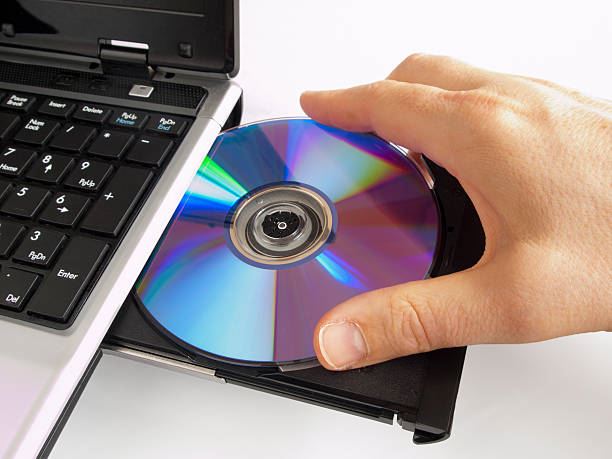The following is a Plus Edition article written by and copyright by Dick Eastman.
Genealogists are generally concerned with long-term data preservation. A lot of genealogists believe that the only method of preserving data is to print the information on paper. Yet, many of us have handled old pieces of paper that are decaying, crumbling, or fading to the point that the information is not readable. In fact, most paper manufactured in the past 75 years or so contains acids that will hasten the deterioration of the information you wish to preserve.
Even worse, the inks and laser printer toner we use today will fade in a few years, even if the paper survives. I already have papers in my filing cabinet I wrote or photocopied 25 or 30 years ago that have faded quite a bit. Some are already difficult to read because of faded ink or photocopy toner. Those papers probably will be unreadable in another 25 or 30 years.
As we have seen recently in several places around the world, paper is especially fragile. Paper documents are easily destroyed by fires, floods, earthquakes, mold, mildew, or building collapse. On several occasions, valuable paper documents have been lost forever due to simple burst water pipes.
 In archivist circles, the preferred solution is to “digitize data so as to preserve it.” However, even digitizing requires some serious precautions and planning. In the past few years, the common choice for long-term digital data storage was CD-ROM or DVD-ROM disks. However, the technology has only appeared in the past three decades; so, we do not yet know if these devices will store data for a century or more. Some studies indicate that the information may not last that long. In fact, there is proof that some CD-ROM disks may not reliably last even one decade! Perhaps one out of every ten disks will become unreadable within ten years with a higher percentage suffering the same fate over 20 or 30 years.
In archivist circles, the preferred solution is to “digitize data so as to preserve it.” However, even digitizing requires some serious precautions and planning. In the past few years, the common choice for long-term digital data storage was CD-ROM or DVD-ROM disks. However, the technology has only appeared in the past three decades; so, we do not yet know if these devices will store data for a century or more. Some studies indicate that the information may not last that long. In fact, there is proof that some CD-ROM disks may not reliably last even one decade! Perhaps one out of every ten disks will become unreadable within ten years with a higher percentage suffering the same fate over 20 or 30 years.
Perhaps of even greater concern is the fact that CD-ROM and DVD disks are slowly disappearing. Many laptop computers and more than a few desktop computers of today do not contain CD-ROM disk drives. Even Netflix has switched from renting movies on CD-ROM disks that are mailed to the customers to online “streaming video.” Almost all music today is rented or purchased from online services, such as from iTunes, Amazon Music, Google Play, Spotify, or other subscription-based services.
Record stores, CD-ROM stores, and video rental stores have almost disappeared. When was the last time you rented a movie on a DVD disk? Even record stores are closing or changing their business practices. The preferred method of obtaining music nowadays is to download it online.
Online distribution is replacing CD-ROM distribution of data, audio, and video media.
The remainder of this article is reserved for Plus Edition subscribers only. If you have a Plus Edition subscription, you may read the full article at: https://eogn.com/(*)-Plus-Edition-News-Articles/13283273.
If you are not yet a Plus Edition subscriber, you can learn more about such subscriptions and even upgrade to a Plus Edition subscription immediately at https://eogn.com/page-18077.